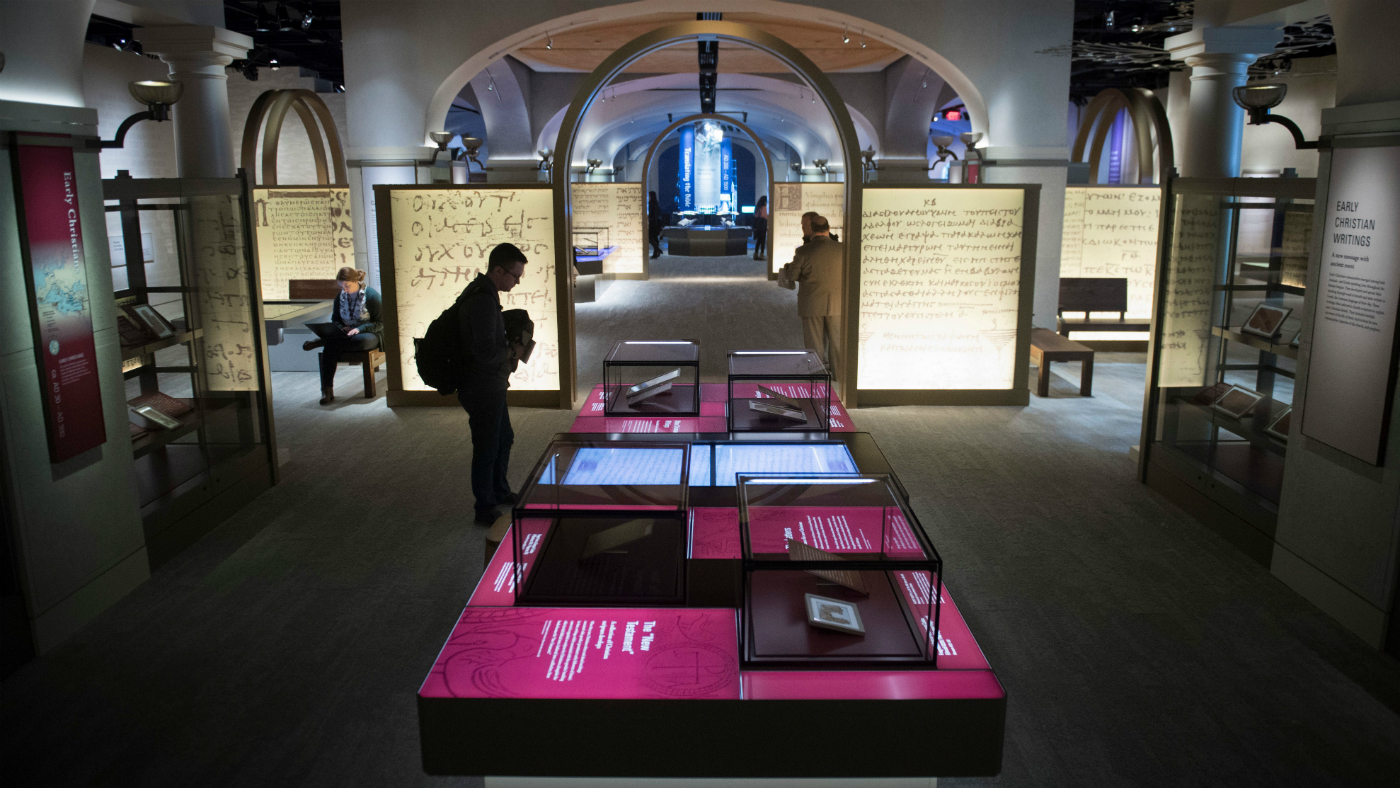$500m ‘Museum of the Bible’ opens in Washington DC
Critics question its huge cost amid questions over artefact authenticity

A free daily email with the biggest news stories of the day – and the best features from TheWeek.com
You are now subscribed
Your newsletter sign-up was successful
This week, an opulent new tourist attraction, the “Museum of the Bible”, will open its doors to the public in Washington DC. It has been built at an eye watering cost of $500 million (£378 million).
The museum, which celebrates its grand opening today, is privately funded by Steve Green, an evangelical Christian and owner of the arts and crafts retail chain Hobby Lobby. The museum will feature a “huge array of artefacts both from Green’s private collection and from traveling exhibits from around the world”, writes Travel and Leisure.
The opening of the museum’s Book of Genesis-inscribed doors has prompted a vast range of responses.
The Week
Escape your echo chamber. Get the facts behind the news, plus analysis from multiple perspectives.

Sign up for The Week's Free Newsletters
From our morning news briefing to a weekly Good News Newsletter, get the best of The Week delivered directly to your inbox.
From our morning news briefing to a weekly Good News Newsletter, get the best of The Week delivered directly to your inbox.
Some have expressed their approval:
Others have questioned the museum’s cost of construction.
The museum has been the subject of several other controversies in recent months.
Experts on biblical artefacts have stepped forward to question the authenticity of some of the museum’s exhibits. The Chronicle of Higher Education writes that “on the fourth floor of the museum, there is an impressively grand section dedicated to the Dead Sea Scrolls, including from books of the Hebrew Bible that were hidden in caves for centuries until they were stumbled on in 1947 by a Bedouin boy.
A free daily email with the biggest news stories of the day – and the best features from TheWeek.com
“But a number of biblical scholars believe that most if not all of the Dead Sea fragments sold since 2001 — which would include those purchased by Green — are modern forgeries.
“In a recent article published in the journal Dead Sea Discoveries, Kipp Davis, a research fellow in Hebrew Bible at Trinity Western University, concluded that at least six of the 13 fragments owned by Green are almost certainly fake.”
Furthermore, accusations of artefact smuggling have hung over Green dating back to 2011. In July this year, Green’s Hobby Lobby chain agreed to return more than 5,000 items and pay a $3m settlement after the Department of Justice accused the firm of smuggling antiquities taken from Iraq, reports the Washington Post.
“The US Justice Department investigated Hobby Lobby for importing ancient Mesopotamian cuneiform fragments and bullae of Iraqi origin that were falsely labelled as Turkish tile samples and valued at $300”, the Art Newspaper adds. “Green’s lawyers said that he was a new collector and unschooled in US import rules.”
-
 Elon Musk’s pivot from Mars to the moon
Elon Musk’s pivot from Mars to the moonIn the Spotlight SpaceX shifts focus with IPO approaching
-
 ‘Hong Kong is stable because it has been muzzled’
‘Hong Kong is stable because it has been muzzled’Instant Opinion Opinion, comment and editorials of the day
-
 Magazine solutions - February 20, 2026
Magazine solutions - February 20, 2026Puzzle and Quizzes Magazine solutions - February 20, 2026